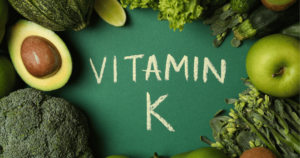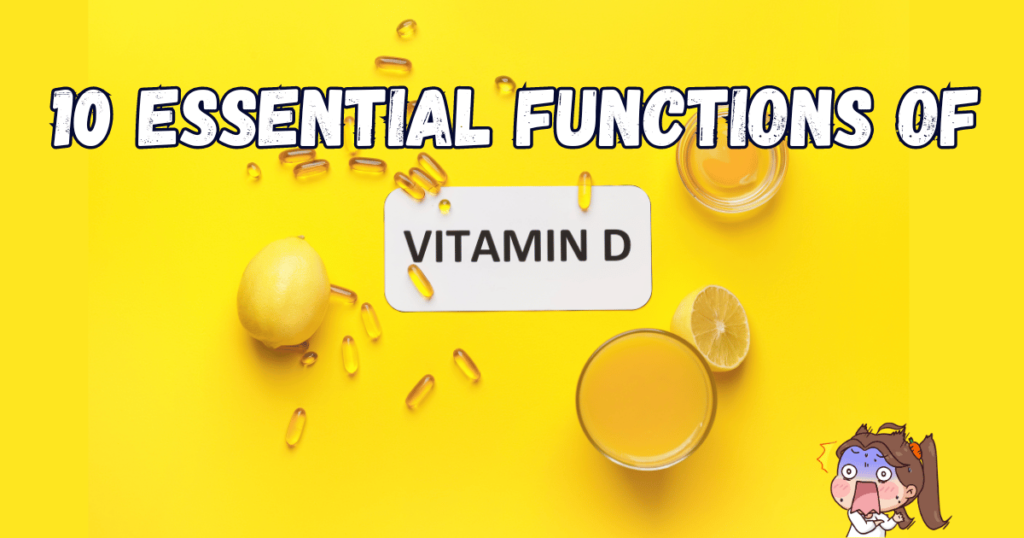How Vitamin K Supplements Support Blood Clotting and Bone Health, In the symphony of essential vitamins, vitamin K stands out as a crucial player, often overshadowed by its more famous counterparts. However, this unsung hero plays a dual role of paramount importance in our bodies. Not only does it facilitate proper blood clotting, but it also contributes significantly to bone health. In this article, we will embark on a journey through the fascinating world of vitamin K, shedding light on how supplements of this indispensable nutrient support both blood clotting and bone integrity.

The Vitamin K Saga
Vitamin K is a fat-soluble vitamin, existing in two primary forms: K1 (phylloquinone) and K2 (menaquinone). While K1 is primarily obtained from plant sources, K2 is synthesized by gut bacteria and is also found in animal products and fermented foods. Both forms of vitamin K are vital for maintaining optimal health.
Vitamin K and Blood Clotting
- Coagulation Cascade: Vitamin K is an essential co-factor in the coagulation (clotting) process. It supports the activation of specific proteins, known as clotting factors, that are integral to forming a stable blood clot in response to injury.
- Prothrombin and Fibrinogen Synthesis: Vitamin K is necessary for the production of key proteins involved in blood clotting, including prothrombin and fibrinogen. Without sufficient vitamin K, the body’s ability to form effective clots is compromised.
- Preventing Hemorrhage: A deficiency in vitamin K can lead to an increased risk of bleeding and hemorrhage. This is particularly crucial during surgical procedures or in individuals taking medications that affect blood clotting.
Vitamin K and Bone Health
- Osteocalcin Activation: Vitamin K plays a pivotal role in bone metabolism by activating osteocalcin, a protein essential for proper calcium utilization in bone tissue. This process helps maintain bone density and strength.
- Reducing Fracture Risk: Studies have suggested that adequate vitamin K intake is associated with a reduced risk of fractures, particularly in postmenopausal women. This underscores its importance in preserving bone health.
- Interplay with Vitamin D: Vitamin K works in synergy with vitamin D to support bone health. While vitamin D aids in calcium absorption, vitamin K ensures that calcium is deposited in bones and not in soft tissues, where it can lead to complications.
Sources of Vitamin K
Vitamin K is crucial for blood clotting and maintaining healthy bones. It is found in a variety of foods, including:
- Green Leafy Vegetables: These are some of the best sources of Vitamin K. Examples include kale, spinach, Swiss chard, collard greens, and turnip greens.
- Vegetable Oils: Certain oils, such as soybean and canola oil, are high in Vitamin K.
- Fruits: Fruits like blueberries and figs contain modest amounts of Vitamin K.
- Meat, Dairy, and Eggs: While not as rich as leafy greens, certain animal products like liver, meat, cheese, and eggs can provide Vitamin K.
- Fermented Foods: Foods like natto (a Japanese fermented soybean dish) are extremely high in Vitamin K2, a form of Vitamin K.
- Fish: Certain fish, such as salmon and shrimp, also contain Vitamin K.
- Herbs and Spices: Some herbs and spices, including basil, thyme, parsley, and coriander, have significant amounts of Vitamin K.
- Other Vegetables: Broccoli, Brussels sprouts, and asparagus are also good sources.
It’s important to note that there are different forms of Vitamin K, like K1 (found mostly in plants) and K2 (found in animal products and fermented foods). A balanced diet typically provides adequate Vitamin K, but individuals with certain health conditions may need to monitor their intake more closely.
Conclusion
Vitamin K, often overlooked in comparison to its more celebrated counterparts, plays a dual role of paramount importance in maintaining our health. Its contributions to blood clotting and bone health are vital for our overall well-being. By incorporating vitamin K-rich foods into our diets and considering supplementation when necessary, we can ensure that this essential nutrient continues to support our bodies in their intricate dance of maintaining balance and vitality.
check this out :Top 10 Worst Breakfast Foods to Avoid in the Morning for a Healthy Start



